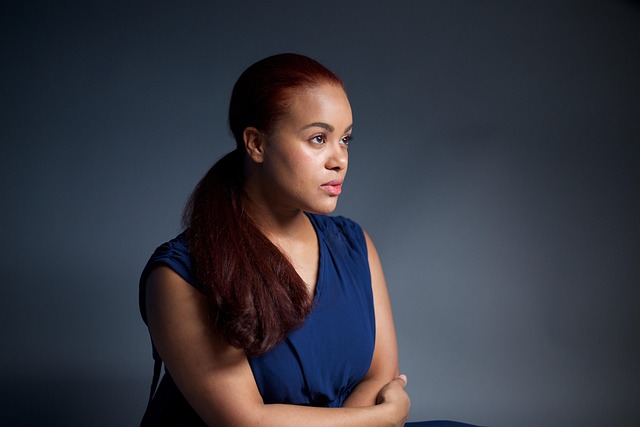Stereotypes and societal expectations restrict girls' aspirations from a young age, dictating roles like mother and limiting interests. Challenging these stereotypes through promoting gender equality in STEM fields, providing expressive spaces, fostering leadership, and diverse educational opportunities is key. Media portrayals and unfair expectations also hinder their potential, so encouraging critical thinking and open discussions can empower girls to forge their own paths. A girl-centric approach in education, including comprehensive sex ed and digital literacy, opens doors to diverse opportunities, helping them reach their full potential.
Stereotypes about girls and their roles in society can have profound effects, limiting their potential and well-being. This article explores how gender stereotypes affect girls across various aspects of their lives, from aspirations and self-esteem to educational choices and media representation. We delve into the constraints placed on girls by societal expectations, highlighting the challenges they face in navigating a world that often has different standards for boys and girls. Understanding these impacts is crucial in fostering an environment that empowers girls to reach their full potential.
- Limiting Girls' Aspirations: Stereotypes Constrain Choices
- Impact on Self-Esteem: Internalizing Negative Labels
- Narrowing Educational Paths: Science vs. Feminine Interests
- Gendered Media Portals: Messages and Misconceptions
- Unfair Societal Expectations: Balancing Act for Girls Today
Limiting Girls' Aspirations: Stereotypes Constrain Choices

Stereotypes often limit the aspirations and choices of girls from a young age. Societal expectations can narrow their focus, dictating that they should aspire to be mothers or adhere to traditional gender roles. These preconceived notions prevent them from exploring diverse career paths and interests. For instance, encouraging girls to pursue STEM (Science, Technology, Engineering, and Mathematics) fields is crucial for breaking these barriers; visiting us at Breaking Barriers: Girl’s Education in STEM anytime can open doors to inspiring opportunities. Stereotypes may suggest that sports or academic excellence is not for girls, hindering their potential to achieve success in these areas.
By promoting gender equality and challenging stereotypes, girls can build resilience through education and empowerment. Encouraging them to make their own choices and pursue their passions fosters a sense of agency. It allows girls to break free from limiting beliefs and embrace their full potential. This, in turn, contributes to their overall development, empowering them to shape their futures and contribute significantly to society, be it through sports, education, or any other field they choose to excel in.
Impact on Self-Esteem: Internalizing Negative Labels

The impact of gender stereotypes on young girls is profound and can significantly shape their self-perception and future aspirations. When girls are exposed to societal expectations that limit their roles based on gender, it can lead to internalized beliefs about their capabilities and worth. Negative labels such as “dumb,” “delicate,” or “submissive” often attached to girls and femininity can erode their confidence and self-esteem. This internalization of stereotypes may cause them to question their intelligence, creativity, and leadership potential.
Overcoming these challenges begins with challenging the status quo and advocating for girls’ rights in education and society. By providing girls with spaces to express themselves, fostering girl-led projects, and encouraging their participation in leadership roles, we can help them break free from limiting stereotypes. Unleashing a girl’s creativity and potential is crucial, as it empowers her to navigate challenges and pursue her passions. Moreover, supporting initiatives that promote gender equality in education, such as finding us at overcoming cultural barriers to girls’ education, plays a vital role in ensuring girls are given every opportunity to thrive and reach their full potential, unencumbered by outdated stereotypes.
Narrowing Educational Paths: Science vs. Feminine Interests

From a young age, girls are often presented with a narrow spectrum of interests and paths to follow—a phenomenon that significantly impacts their educational choices. Stereotypes suggest that girls are naturally drawn to subjects like art, literature, and childcare, while science, technology, engineering, and mathematics (STEM) fields are perceived as more suitable for boys. This bias leads to a lack of representation and opportunities for girls in STEM-focused educational programs. As a result, many girls may feel deterred from pursuing careers in these sectors, missing out on valuable girl-focused educational resources online that could foster their interests and skills.
However, empowering girls through art and music, or encouraging them to become agents of change in their communities, can challenge these stereotypes. By providing diverse educational opportunities, we can inspire girls to break free from traditional roles and embrace their passions. Visiting us at promoting gender equality in schools anytime offers a range of initiatives aimed at supporting this cause. These include innovative programs that integrate STEM subjects with creative arts, encouraging girls to explore and excel in all fields, and ultimately shaping the future through diverse perspectives.
Gendered Media Portals: Messages and Misconceptions

Girls are often subjected to gendered media portals that perpetuate stereotypes and misconceptions about their roles, abilities, and aspirations. From childhood, media outlets, including television shows, movies, advertisements, and social media platforms, present narrowly defined portrayals of femininity, often restricting girls to passive or domestic roles. These messages can significantly shape young girls’ perceptions of themselves and their future paths.
Fostering literacy for girls worldwide is a crucial step in combating these stereotypes. Encouraging critical thinking during Women’s History Month and education initiatives allows girls to analyze media content, question societal norms, and develop a healthier sense of self. By giving us a call at mental health support in schools for girls, educators can create safe spaces for open discussions about gender roles, empowering young women to challenge stereotypes and forge their own paths.
Unfair Societal Expectations: Balancing Act for Girls Today

In today’s society, girls face a constant balancing act due to unfair societal expectations that often limit their potential. Stereotypes about femininity and gender roles pressure girls to conform to specific norms, hindering their ability to explore diverse interests and aspirations. This can significantly impact their educational choices, career paths, and overall well-being. For instance, the emphasis on traditional feminine traits may discourage girls from pursuing fields like STEM (Science, Technology, Engineering, and Mathematics) or participating in extracurricular activities that challenge these stereotypes.
To empower girls and ensure they reach their full potential, it’s crucial to promote a girl-centric approach in education and curriculum design. This includes providing comprehensive sex education that equips girls with knowledge about their sexual and reproductive health. Moreover, encouraging digital literacy among girls can open doors to numerous opportunities, especially as we navigate an increasingly digital world. By giving us a call at Empowerment Through Sports and Education, we can collectively challenge these stereotypes, foster a supportive environment, and design curricula that reflect the diverse talents and aspirations of girls.
Gender stereotypes significantly impact girls by limiting their aspirations, affecting self-esteem through internalized negative labels, narrowing educational paths, and reinforcing misconceptions through media portrayals. These stereotypes also place unfair societal expectations on girls, making it a balancing act for them to navigate their identities today. By recognizing and challenging these stereotypes, we can empower girls to pursue their passions and reach their full potential.





Leave a Reply